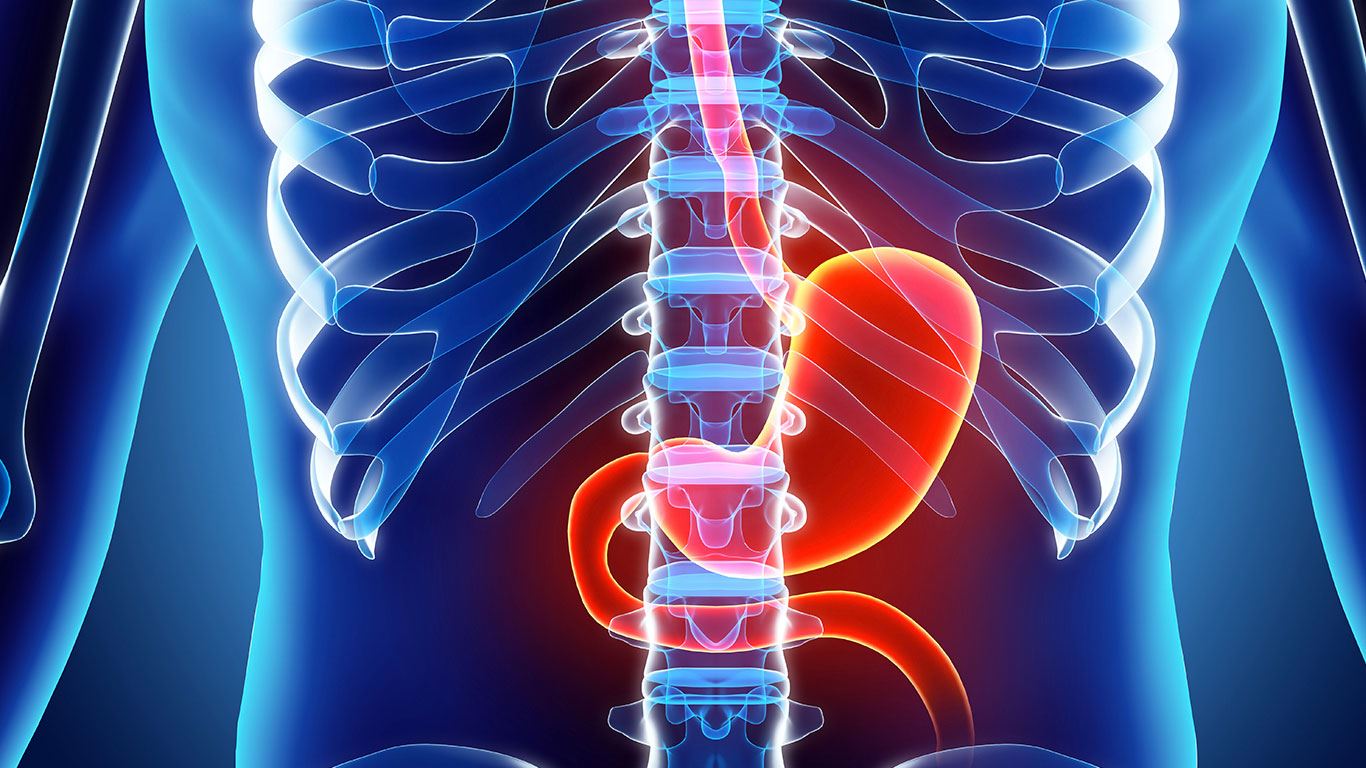Nutrition and Your Immune System
- Category: Health & Wellness, Nutrition
- Posted On:
- Written By: Hayley Esdaile

An overall healthy diet lays the foundation for a strong immune system.
It is no secret that how we eat influences our health. The nutrients present in food enable our body’s cells to perform necessary functions related to growth, development, repair, and immunity. Over the past year, immunity has become a hot topic due to the COVID-19 pandemic. While there are no specific foods that can prevent infection, an overall healthy diet lays the foundation for a strong immune system.
Your immune response relies upon several factors, including the health of your gastrointestinal tract (GI tract)and the presence of specific micronutrients. These two factors are influenced heavily by the foods we eat on a day-to-day basis. A nutrient-devoid diet, often labeled as a “Western Diet,” is a large contributor to chronic disease development and reduced immune function. This is largely due to the lack of micronutrients and the negative impact on your gut microbiome.
You may have read articles suggesting that “superfoods” and “immune-boosting” foods are the be-all and end-all to good nutrition. Still, it is a lot more complicated than eating a handful of blueberries and kale every day. Specific foods are not immune to “boosting” in and of themselves. Eating a variety of high fiber, nutrient-dense foods is what positively impacts your health.

Micronutrients
Micronutrients are vitamins and minerals that are vital to your health. They are largely obtained from food, but few are synthesized by bacteria living in your gut.
Multiple micronutrients are considered essential at every stage of the immune response. They help maintain cells' integrity in innate barriers such as skin, support the growth and activity of immune cells, act as antioxidants to protect healthy cells, produce antibodies, and much more. Deficiencies in these micronutrients harm the immune response. Consuming a well-balanced diet high in diverse vegetables, fruits, whole grains, legumes, nuts, and proteins and adequate micronutrient intake is possible.
Micronutrients that are heavily involved in immune function include vitamins A, C, D, E, B6, B12, zinc, selenium, and iron. Include a variety of these foods in your diet to help prevent vitamin and mineral deficiencies.
- Vitamin A: beef liver, leafy greens (kale, broccoli, spinach), orange/yellow vegetables (carrots, sweet potato), tomato, red bell pepper, cantaloupe
- Vitamin C: citrus fruit (oranges, grapefruit, lemon), bell pepper, kiwi, cruciferous vegetables(broccoli, Brussels sprouts, cauliflower), strawberries
- Vitamin D: cod liver oil, fatty fish (trout, salmon, sardines), mushrooms (exposed to UV light), egg yolk, vitamin D fortified milk
- Vitamin E: sunflower seeds, nuts (almonds, hazelnuts, peanuts), spinach, pumpkin, avocado
- VitaminB6: fish (tuna, salmon), chickpeas, dark leafy greens, bananas, poultry
- VitaminB12: fish, beef, poultry, eggs, milk, fortified grains
- Zinc: shellfish (oysters, crab, lobster), beef, chicken, legumes (chickpeas, lentils, beans), pumpkin seeds, cashews
- Selenium: brazil nuts, fish (yellowfin tuna, sardines, halibut, salmon), shrimp, pork, poultry, eggs, brown rice
- Iron: beef or chicken liver, turkey, beef, tuna, eggs, beans, enriched cereals, lentils, spinach.
Phytonutrients, another type of micronutrient, are components of plant foods. They are not considered to be essential but have shown beneficial influences on the immune system. Phytonutrients are a large topic of interest, as they act as antioxidants and help promote healthy cell communication. Different phytonutrients give plants their color. To make it simple, it is necessary to eat plant-based foods of all different colors to obtain various phytonutrients. In other words, eat the rainbow and avoid an all-beige-colored plate of food.
Should a multivitamin supplement be part of your daily routine?
It depends. Generally, eating a well-balanced diet helps to ensure that you will not become deficient in essential micronutrients. Specific populations may have an increased nutrient demand or reduced capabilities to obtain adequate nutrition from food. Therefore, they may require a multivitamin to fill in any nutritional gaps. Populations at risk for undernutrition include the elderly, infants and toddlers, pregnant and lactating women, and low-income households. Additionally, people that follow restrictive diets, or those that dislike fruits and vegetables, may require supplementation.
A daily multivitamin will usually suffice. Refrain from high intakes of single vitamins and/or minerals unless under the direction of your physician.

Gut Health
The health of your GI tract is an essential component of immune function. Your gut contains trillions of bacteria, both good and bad, otherwise known as the gut microbiota. Good bacteria are involved in response to pathogenic“bad” bacteria, nutrient metabolism, vitamin production, and the processing of waste products. There are many influences on the balance of good and bad bacteria in the gut. Still, diet is one component over which we have direct control. Making healthful dietary choices is imperative to ensure your digestive system functions properly, therefore improving or maintaining your overall health.
To benefit your gut health, eat more foods that help good bacteria flourish and limit foods that increase the abundance of bad bacteria.
Consume More
- Fiber: Consuming a high-fiber diet has been shown to improve gut health, specifically prebiotic fiber.
- Prebiotic Fiber: Prebiotics are components of foods that travel through the GI tract undigested and act as food for the good bacteria in your gut. The presence of prebiotic fibers helps good bacteria flourish. Additionally, when good bacteria ferment prebiotics, short-chain fatty acids are produced. These fatty acids help stimulate immune cell activity. Examples include oatmeal, asparagus, leeks, garlic, banana, onion, apple, flaxseed, avocado, jicama, legumes.
- Probiotics are “good” bacteria consumed through food and/or supplements that benefit your microbiome's health. Examples include yogurt, kefir, sauerkraut, tempeh, kimchi, kombucha.
Consume Less
- Simple sugar
- Refined carbohydrates
- Alcohol
- Trans fats and saturated fats
- Artificial sweeteners.
These foods promote disturbances in the balance of good and bad bacteria in your gut by helping harmful bacteria thrive.
Remember that supplements and superfoods are not going to improve your immune system on their own. Dietary patterns comprised mainly of whole, nutrient-rich foods lay the foundation for good health. By following a generally healthy diet, you can provide your body with the essential nutrients necessary for the immune cells' critical function.
In addition to changes in your diet, the following lifestyle changes will help support a healthy immune system:
- Avoid smoking
- Include moderate exercise regularly throughout the week
- Have a consistent sleep schedule and aim for 7-9 hours each night
- Manage stress
- Wash your hands





